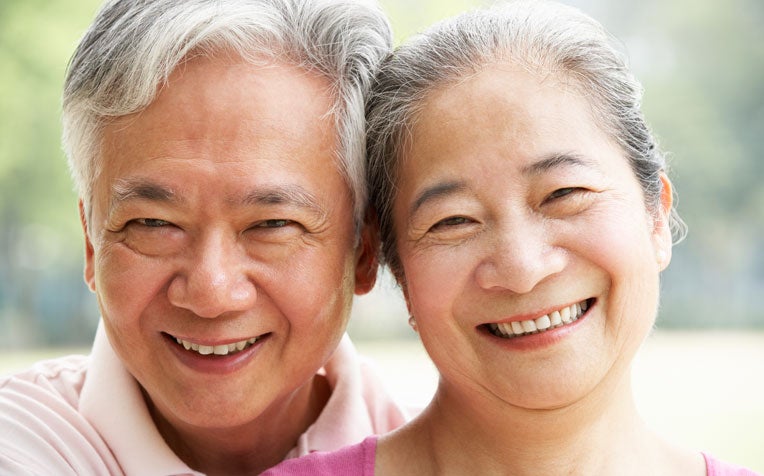1. Menopause brings physical and emotional changes due to hormone decline, affecting intimacy and relationships.
2. Good communication, understanding, and non-sexual intimacy help couples maintain strong relationships during menopause.
3. Women can manage menopause better through "SPEAK Health": Stop smoking, Peaceful mind, Exercise, Alcohol moderation, Know risks.

Menopause or the permanent cessation of the monthly period, is an inevitable occurrence in every woman’s life.
Menopause can take place anywhere between the age of 42 to 58 and brings with it a host of physical as well as emotional changes.
These variations are usually caused by the age-related decline in the levels of the female sex hormones oestrogen and progesterone, which affects a woman’s body as well as her mood and behaviour.
Along with the physical symptoms of menopause such as hot flushes, vaginal dryness, breast tenderness and muscle and joint pains, there are emotional symptoms such as mood swings, depression, insomnia, poor concentration and loss of confidence due to feelings of loss of femininity.
With these myriad physical and emotional symptoms to deal with, menopausal women may be concerned about their physical relationship and intimacy with their partner. They need not worry.
“For most women, menopause does not change her physical relationship with her partner. However, as a woman progresses into menopause, she may experience vaginal dryness due to the lack of oestrogen, which may affect her sexual relationship with her husband,” says Dr Ang Seng Bin, Head and Consultant Family Physician, Family Medicine Service and Menopause Unit, Department of General Obstetrics and Gynaecology, KK Women’s and Children’s Hospital (KKH), a member of the SingHealth group.
A couple can improve their sexual experience by using lubricants or topical oestrogens as a solution for vaginal dryness (if there is no contraindication). Dr Ang adds, “Lubrication requires blood to flow to the vagina and hence foreplay is important especially after menopause. Regular sexual stimulation enhances blood flow to the vagina and hence, vagina health as well.”
But there is more to an intimate physical relationship than sex. “Intimacy does not depend solely on sexual activities. Good communication between partners is important to enhance intimacy and also sexual desire at this stage in life,” says Dr Ang. “As such, an open discussion between partners on their desired relationship often will help maintain their couplehood into the golden years.”
Empty nest syndrome and work stress can aggravate menopause
Life stage issues such as children leaving home (the “empty nest” syndrome), and work stresses or retirement in later years can aggravate a menopausal woman’s emotional symptoms. This in turn, can also affect a woman’s physical relationship with her partner.
Dr Ang says, “Couples need to set aside time in their younger days to spend time alone with each other without the distraction of their families if possible. This will ensure a good relationship is maintained, which will enhance the relationship after menopause.”
“It takes both hands to clap. Both partners have to come together to understand the issues,” he adds.
How can the male partner help improve the relationship?
The male partner can help improve the relationship by being empathetic and understanding, says
Dr Suzanna Sulaiman, Senior Consultant,
Department of Obstetrics and Gynaecology, KKH. “The man needs to try to put himself in the woman’s shoes. He needs to have an open mind and allow his partner to feel that she can talk to him about her emotions, their relationship, her expectations and needs, and vice versa. Having an open relationship enhances trust, confidence, comfort and intense feelings of attraction for each other. This should be encouraged even at the early stages of the relationship, even when the children are still young."
Dr Sulaiman says there are many ways, besides sex, in which a menopausal woman can be physically intimate with her partner. “After menopause, touching can sometimes become more important than the physical pleasure of sex. Such contact offers reassurance and comfort and the opportunity to show tenderness, companionship and love.” To enhance their relationship, couples can do the following:
- Plan weekend getaways
- Have dinner and film dates
- Spend time together watching television, reading a good book
- Have a romantic evening outdoors looking at the open sky and counting the stars.
Dr Sulaiman says, “A simple touch like a peck on the forehead or on the cheek can make a woman smile. Sometimes, a hug and a cuddle, holding hands and walking, or watching television with her husband’s arm wrapped around her shoulders, can make a woman’s day, whether she is old or young. It is all about 'growing old together' gracefully, with much comfort and love.”
"SPEAK" health to enhance well-being
To enhance her overall sense of well-being during menopause, a woman should have a healthy diet, regular exercise, maintain a peaceful and active mind, and avoid toxins as far as possible, advises Dr Ang.
A menopausal woman should follow the acronym “SPEAK Health”, he says.
S – Stop smoking
P – Peaceful mind
E – Exercise regularly
A – Alcohol in moderation (or do not start if you are not drinking)
K – Know your risks (know your personal and family history of diseases and go for screening regularly)
Health – Healthy eating
Ref: O18
Contributed by


















 Get it on Google Play
Get it on Google Play